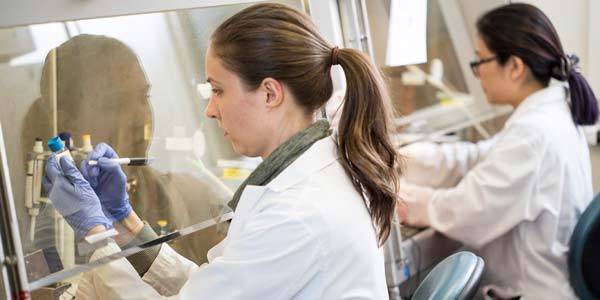Apply basic sciences and engineering to solve biomedical problems. Gain comprehensive research experience.
UW Bioengineering’s thesis-based Master of Science students bring diverse experience from a variety of academic disciplines to solve biomedical problems using basic science and engineering principles while gaining comprehensive research experience.
To be considered for this program, applicants must submit a letter of endorsement written by a member of the Bioengineering Core Faculty or Adjunct Faculty.
Master of Science program at a glance
- Interdisciplinary approach: Students gain interdisciplinary knowledge of mathematics, engineering principles, physics, chemistry, physiology and modern biology.
- Research experience: Students undertake a significant research project, and prepare a thesis documenting their work, which they must defend in a final oral examination.
- Skills-building curriculum: Students complete a core curriculum focused on developing skills essential to professional growth and success in independent research.



